Partners
data
Data Partners
NEON works with other organizations to improve data discoverability. Please read more about our partners below.
AERONET (AErosol RObotic NETwork) project
The AERONET (AErosol RObotic NETwork) project is a federation of ground-based remote sensing aerosol networks, established by NASA, PHOTONS and many domestic and international partners, that provides a public domain database of aerosol optical, microphysical and radiative properties. NEON submits data routinely to AERONET from spectral sun photometers installed at terrestrial sites.
AmeriFlux
NEON's flux towers make up approximately 1/3 of the AmeriFlux network. NEON periodically submits several data products to AmeriFlux, which are served from the AmeriFlux data portal.

Arctic Observing Viewer (AOV)
The Arctic Observing Viewer (AOV) is a web mapping application and information system designed to help with visualization, strategic assessment, and decision support for initiatives tied to Arctic Observing. Plot and instrument level field site information for NEON's Alaska sites are included.

Arizona State University Center for Global Discovery and Conservation Science Global Airborne Observatory
The GAO collects and processes remote sensing for NEON at our Hawaii site, PUUM.

Barcode of Life Data System (BOLD)
The Barcode of Life Data System (BOLD) is the leading repository and analysis platform for DNA barcoding sequences and a rich variety of associated metadata. NEON's Fish, Ground Beetle, Mosquito, and Small Mammal DNA barcoding data are hosted by BOLD, and linked to from the NEON Data Portal.

Data Observation Network for Earth (DataONE)
Data Observation Network for Earth (DataONE) provides a distributed framework and sustainable cyberinfrastructure for open, persistent, robust, and secure access to Earth observational data. NEON, as a DataONE Member Node, shares dataset information in the DataONE Search tool.

Environmental Data Initiative (EDI)
EDI is actively promoting and enabling curation and re-use of environmental data, assisting researchers from field stations, individual laboratories, and research projects of all sizes to publish their environmental data. EDI is committed to enabling FAIR data.

Global Biodiversity Information Facility
As a GBIF Publisher, the NEON Biorepository submits specimen records to GBIF to facilitate discovery of NEON collections.

iDigBio (Integrated Digitized Biocollections)
The NEON Biorepository submits specimen records to iDigBio to facilitate enhanced discovery.

PhenoCam Project
The PhenoCam project provides a platform for cooperating investigators to share images from automated cameras to provide continuous, real-time monitoring of vegetation phenology across a range of ecosystems and climate zones. Check out NEON's images and derived greenness indices.

USA National Phenology Network
The USA National Phenology Network serves science and society by collecting, storing, and sharing phenology data and information. NEON's Plant Phenology observational data has been integrated with data collected by the USA-NPN Nature's Notebook citizen science program and is accessible via the National Phenology Database. These data can be summarized and explored in the USA-NPN Visualization Tool.

Registry of Research Repositories (re3data)
The Registry of Research Repositories (re3data) is designed to help researchers find data repositories relevant to their work. NEON is listed here.

Biodiversity Information Standards (TDWG)
"Historically known as the Taxonomic Databases Working Group, today's Biodiversity Information Standards (TDWG) is a not-for-profit, scientific and educational association formed to establish international collaboration among the creators, managers and users of biodiversity information and to promote the wider and more effective dissemination and sharing of knowledge about the world's heritage of biological organisms." - TDWG
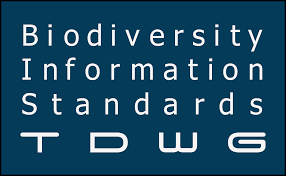
DOE Joint Genome Institute
An award to generate metagenomics data from NEON samples collected in 2023 and 2024.
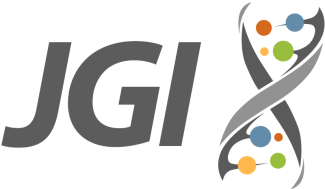
DOE National Microbiome Data Collaborative
Increases discoverability and interoperability of NEON data.
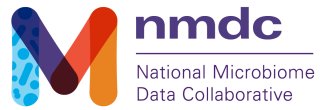
community
Engagement Partners
AGU Thriving Earth Exchange
NEON is partnering with the American Geophysical Union’s Thriving Earth Exchange (TEX) program - an international association of more than 60,000 advocates and experts in Earth and space science that fosters community science partnerships to advance local priorities. NEON staff are serving as Community Science Fellows to facilitate and lead collaborative, co-developed community science projects that produce on-the-ground impact in local communities. NEON Fellows are working with TEX staff to serve as leaders in community science in their Domain and across the Observatory.
Ecological Forecasting Initiative (EFI)
The Ecological Forecasting Initiative is a grassroots consortium aimed at building and supporting an interdisciplinary community of practice around near-term (daily to decadal) ecological forecasts. NEON is a proud partner of the EFI-NEON Ecological Forecasting Challenge.
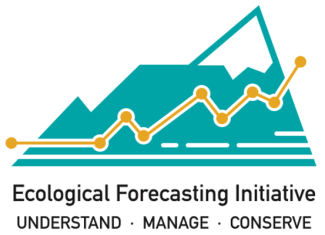
samples
Collections partners
BioKIC at Arizona State University
The Biodiversity Knowledge Integration Center (BioKIC) at Arizona State University provides NEON data discovery and integration services for samples and specimens accessioned through the NEON Biorepository.


Carnegie Museum of Natural History
The Carnegie Museum of Natural History has provided archival services and taxonomy for thousands of pinned beetle vouchers collected at NEON terrestrial sites.

Essig Museum of Entomology at UC Berkeley
The Essig Museum has provided archival services and taxonomy for thousands of pinned beetle vouchers collected at NEON terrestrial sites.
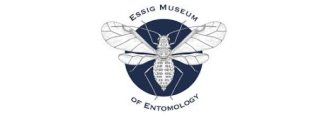
United States National Tick Collection at Georgia Southern University
The US National Tick Collection has provided archival services and taxonomy for thousands of tick vouchers collected at NEON terrestrial sites.

University of Michigan Biological Station - Sample Archive Facility in Ehlers (UMBS-SAFE)
Some Megapit and Distributed Initial Characterization Soil Archives are located at University of Michigan Biological Station - Sample Archive Facility in Ehlers (UMBS-SAFE) and are available upon request.
Denver Museum of Nature and Science
Ground beetle (pooled carabids and bycatch stored in ethanol) specimens from Colorado, Florida, and Massachusetts (generally from 2013).
Florida Museum of Natural History
Small mammal samples previously collected in Florida - University of Florida Gainesville, Florida Museum of Natural History
